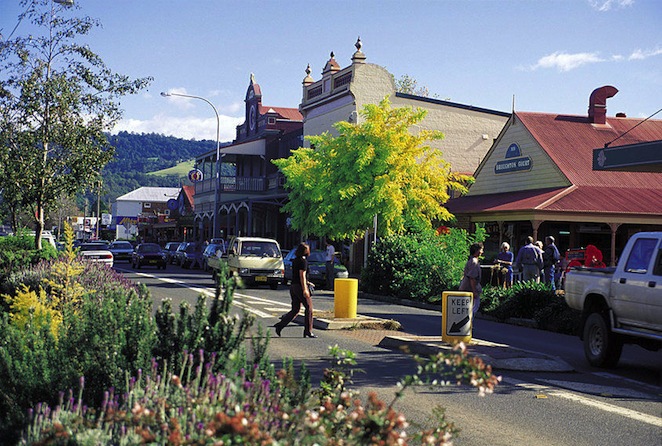Poland
Find Eduxpress Programmes
Poland is the 9th largest country in Europe and an increasingly popular destination for international students. Local universities offer a good return on investment, with affordable study programmes and accommodation costs. Add in the low living expenses and you have a formula for (financial) success.
5 Reasons to study in Poland:
Poland’s tradition of academic education goes back to 1364 when King Casimir the Great established the Cracow Academy, known today as the Jagiellonian University. The Cracow Academy, being one of the oldest in the world, took after academies in Bologna and Padua, and was the second university in Central Europe after Prague.
Today, the Polish higher education system is developing rapidly. Poland holds fourth place in Europe (after the United Kingdom, Germany and France) in terms of the number of people enrolled in higher education. The total student population at over 400 university level schools is almost one and a half million. Each year almost half a million young people begin their education at universities and colleges. The Polish university level schools offer over 200 high quality types of study as an integral part of the European Higher Education Area. Most schools offer courses in foreign languages.
Poland plays an active part in the Bologna Process. Owing to the introduction of three-stage education modelled on Bachelor/Master/Doctoral studies as well as the European Credit Transfer System, both Polish students and international students studying in Poland stay fully mobile and can continue their education elsewhere in the European Union without any problems. Within just the Erasmus Program that has been going on for over 20 years now, over 43,000 foreign students have come to study in Poland while almost 100,000 students from Poland have taken part of their education in another country within the European Union. Foreign students coming to Poland can expect the most attractive and diversified education opportunities meeting high European standards. They can study medicine, biotechnology or engineering, but also art and business and many other subjects. The diploma awarded to them upon graduation is recognised not only Europe-wide but also in most countries of the world.
The Polish higher education system is well developed. The quality of the education provided is monitored and regularly evaluated. The main Polish institutions in charge of quality assurance in higher education are: the Polish Accreditation Committee, the General Council of Higher Education and the Conference of Rectors of the Academic Schools in Poland. There are over 5,000 courses available in Poland and each of them has had to gain the Polish Accreditation Committee’s approval. Among them there are a number of fields of study that have received the grade: excellent. The list of excellent fields of study is available at the Polish Accreditation Committee website: http://www.pka.edu.pl/?q=en/oceny.
Compared to other EU countries, the tuition fees in Poland are really competitive and the costs of living are a fraction of what a foreign student would have to spend in other European cities.
Find out more and apply
For the essential information about studying in Poland and applying for higher education programmes, visit the Go-Poland website.
Out of the various academic courses available in Poland, these are some of the most popular among international students:
The following are the best Polish universities that offer English-taught degrees:
Each university in Poland has its own admission system on their website that allows future students to apply for and enrol in their Bachelor’s or Master’s degree programmes. So, once you select the university of your choice, you can go through their application and submit your materials there.
Here are some documents you might need to submit during your university application:
Let's take a closer look at tuition fees, living costs, and the student life in Poland:
Public universities in Poland implement the following tuition fee structure:
Some courses, like MBAs or Dentistry might cost as much as 15,000 EUR per academic year.
Tuition fees are usually even higher at private universities, but you can also find lower-cost degrees.
The average living expenses in most Polish cities are around 350–550 EUR per month. In larger cities, like Krakow or Warsaw, students will need between 500 and 850 EUR.
There are many different options for arranging student accommodation in Poland. They vary depending on the city and higher education institution you choose.
Many Polish higher education institutions (HEIs) have their own dormitories, which are usually the cheapest option available. However, most Polish students prefer to rent a room in a private apartment.
rent in a private flat: 80–150 EUR/month plus the utilities bill (100–150 EUR)
Healthcare in Poland is available for students from EU/EEA countries, provided that they hold valid medical insurance in the national insurance system of their country. A valid passport, student identity card or doctoral student identity card and a valid European Health Insurance Card (EHIC) entitles its holder to medical care free of charge in Poland.
Non-EU/EEA students need to get a private healthcare insurance plan.
social events and entertainment: 30–70 EUR/month
Poland has a moderate climate with both maritime and continental elements. The weather tends to be changeable and unpredictable. You can count on many sunny days and many rainy days and don’t be surprised when the summer turns out to be quite hot or quite rainy.
Winters are usually cold, with temperatures well below freezing, and more or less snowy. If you come from a warmer climate, make sure you have proper clothing.
The student card is the size of a credit card, but it can change your life. Not only does it confirm your student status and allow access to libraries and other HEI facilities, but it also entitles you to all kinds of student discounts, most important of them being a 50% discount on public transport (saving you up to 15 EUR every month).
Most Polish cities have well-developed networks of public transport. Depending on a city, they include buses, trams, trolley buses, trains and underground trains. It is usually a good idea to buy a monthly or semester pass, as it’s hard to avoid public transport.
Even if you manage to find accommodation close to the university, its separate faculties or facilities may not be within walking distance.
There is a wide range of leisure activities available in Poland. Whatever you enjoy, you’ll probably find it here! Those who like to be active can use one of the well-equipped sport facilities or explore beautiful Polish landscapes while cycling, hiking, horse-riding, sailing, canoeing, ballooning or in any other way they want.
Those who like sight-seeing should visit the churches, castles, museums and many other attractions. The culture-oriented students can choose between many theatres and galleries as well as philharmonics, concerts and music clubs. There are also a number of interesting festivals organised throughout the year.
To be able to study in Poland, a non-EU/EEA citizen must demonstrate that they possess sufficient means to cover the costs of living in Poland. Still, some students may wish to combine studies with work.
In this case, non-EU/EEA students who stay in Poland with a visa generally need to apply for a work permit, which is granted only if no EU citizens can fill the position.
Poland is one of the largest countries in the Eastern Europe. Its size is comparable with Italy and it borders Germany, the Czech Republic, Slovakia, Lithuania, Russia, Ukraine and Belarus. It has a population of over 38 million people, which makes it the sixth most populated member of the European Union. Living in Poland is living in the heart of Europe. You drive only a few hours and you can be in another country.
The Baltic Sea, the Masurian Lake District, the Tatra Mountains, vibrant cities, lovely towns, picturesque villages - in Poland everything is at hand! Natural, cultural and historical diversity are remarkable and unique. Warsaw – the capital, a financial and political centre, Cracow - full of Polish history with wonderful monuments or Gdansk where you can taste not only the city life but also relax on the beach.
Great (north) Poland was founded in 966. The tribes of southern Poland then formed Little Poland. Poland merged with Lithuania by royal marriage in 1386. The Polish-Lithuanian state reached the peak of its power between the 14th and 16th centuries, scoring military successes against the (Germanic) Knights of the Teutonic Order, the Russians, and the Ottoman Turks.
Lack of a strong monarchy enabled Russia, Prussia, and Austria to carry out a first partition of the country in 1772, a second in 1792, and a third in 1795. For more than a century thereafter, there was no Polish state. The Polish people revolted against foreign dominance throughout the 19th century. Poland was formally reconstituted in 1918.
In 1939, at the beginning of World War II, a German-Soviet agreement divided Poland between the USSR and Germany. The Polish government-in-exile was replaced with the Communist-dominated Polish Committee of National Liberation by the Soviet Union in 1944. A new constitution in 1952 made Poland a “people's democracy” of the Soviet type. In 1955, Poland became a member of the Warsaw Treaty Organization, with its foreign policy identical to that of the USSR.
After the fall of communism, in 1991, the first fully free parliamentary election since World War II resulted in representation for 29 political parties. In 1999, Poland became part of NATO, along with the Czech Republic and Hungary.
Poland is one of the fastest growing economies, being the 6th largest economy in the European Union and the 21st in the world. It is worth mentioning that Poland is the only EU member state that showed a positive GDP during the recent economic crisis.
Poland is a member of the European Union (EU), the Schengen Area, North Atlantic Treaty Organisation (NATO), United Nations (UN), and more.



